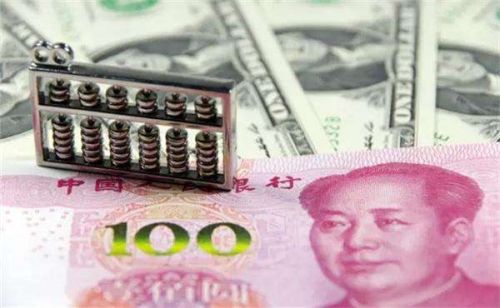
BEIJING, Sept. 7 (Xinhua) -- China's forex reserves rose for the 7th month in a row in August as the yuan gained strength and pressure of massive capital outflow eased, data from the central bank showed Thursday.
Forex reserves reached 3.092 trillion U.S. dollars by the end of August, increasing 10.8 billion dollars from a month earlier, according to the People's Bank of China.
It is the first time the reserves have expanded seven months in a row since June 2014.
In an online statement, the State Administration of Foreign Exchange (SAFE) attributed the rise to stable cross-border capital flows and balanced supply-demand in the forex market.
"Climbing asset prices in the global financial market also pushed up the stockpile," the statement said.
The U.S. dollar has continued to weaken against most major currencies last month due to weak economic data and uncertainty over monetary policy moves, which drove up the value of non-dollar assets in China's reserve holdings.
The dollar index, which measures the greenback against six major peers, edged down 0.3 percent last month, following a 2.89-percent drop in July.
There had been concerns over capital flowing out of the Chinese market in the second half of 2016, when the economy was facing looming downward pressures and the Chinese yuan was in the middle of a losing streak against the U.S. dollar.
In January, China's forex reserves had plunged below 3 trillion U.S. dollars, but as the economy stands on a firmer footing and the yuan continues to stabilize, the stockpile has increased steadily since February.
China's economy expanded 6.9 percent for the first half of 2017, with consumption and services, together with new innovation-driven economic sectors, taking up larger roles in the economy, prompting global institutions such as the IMF to raise GDP forecasts for the country.
Along with the improvements in the economy, the value of the Chinese currency has been trending upwards.
The central parity rate of the renminbi strengthened 42 basis points to 6.5269 against the U.S. dollar Thursday, rising 6 percent from the beginning of the year, which shrugged off concerns of sharp depreciation.
Zhou Jingtong, a senior researcher with the international finance institute of the Bank of China, attributed the yuan's rebound to combined factors including a stabilizing economy, weaker U.S. dollar and government restrictions on capital flows.
Chinese authorities have been stepping up efforts to curb aggressive overseas acquisitions by the country's ambitious dealmakers, including Dalian Wanda, HNA Group Co. and Anbang Insurance Group.
In a document last month, the State Council said overseas investments in areas including real estate, hotels, cinemas, the entertainment industry and sports clubs will be limited, while investments in some sectors such as gambling will be banned.
The document also imposed restrictions in the setup of overseas private equity funds or other investment platforms without specific projects and limited investments that do not meet technological, environmental, or safety standards of the destinations.
Looking forward, with efforts to advance structural reforms, the positive factors that underpin China's growth will continue to accumulate, which will contribute to sustained stabilization in cross-border capital flows, according to SAFE.
The regulator said in July that the country was seeing its most balanced forex market supply and demand in three years due to an improving economy at home and abroad as well as an intensified crackdown on irregularities.
Thursday's data also showed that the country's gold reserves rose to 77.7 billion dollars by the end of August from 75 billion dollars at the end of July.




 A single purchase
A single purchase









